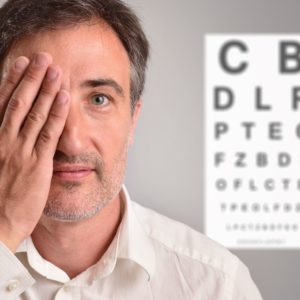Understanding retinal vascular occlusion
Saturday, May 15th, 2021, 10:55 am There are many working parts to the eye that allow it to function properly and provide you with the vision you need to be a participant in your active lifestyle. However, there are a wide range of conditions and disease that can put your clear vision at risk. Eye health and vision health should be monitored with a professional, such as an ophthalmologist at Marion Eye Center and Optical. Conditions such as retinal vascular occlusion need to be caught early to ensure proper monitoring and treatment.
There are many working parts to the eye that allow it to function properly and provide you with the vision you need to be a participant in your active lifestyle. However, there are a wide range of conditions and disease that can put your clear vision at risk. Eye health and vision health should be monitored with a professional, such as an ophthalmologist at Marion Eye Center and Optical. Conditions such as retinal vascular occlusion need to be caught early to ensure proper monitoring and treatment.
What is retinal vascular occlusion?
The doctors at Marion Eye Center and Optical describe retinal vascular occlusion as a blockage in the blood that is carried to the retina. The retina is a light-sensitive layer of tissue that is located at the back of the eye, and it requires a constant supply of blood to function properly. When fluid build up or blockage occurs, it can result in the sudden loss of vision. Vision loss varies depending on where the clot or blockage happened. This condition can be potentially serious and can impact patients around the age of 40 and up.
What are the symptoms of retinal vascular occlusion?
- Blurry vision
- Partial or complete loss of vision
- Sudden changes in vision
What types of retinal vascular occlusion are there?
There are two primary varieties of this condition, including retinal artery occlusion and retinal vein occlusion. First is retinal artery occlusion. This is characterized by a blockage in the arteries that carry blood to the retina from the heart, and this blockage of the main artery is referred to as central retinal artery occlusion. Smaller branches of veins affected is known as branch retinal artery occlusion. The other type is retinal vein occlusion, which is a blockage of the veins in eye that provide blood to the heart. Blockages may be central retinal vein occlusion (CRVO) or branch retinal vein occlusion (BRVO).
Contact Marion Eye Center and Optical today
With over 30 locations throughout the areas of Illinois and Missouri, there is bound to be an office near you! Call one of our practices to make an appointment with our providers to find out if you are dealing with retinal vascular occlusion or other eye conditions that may impact your vision—permanently.
Category: Retina Institute
